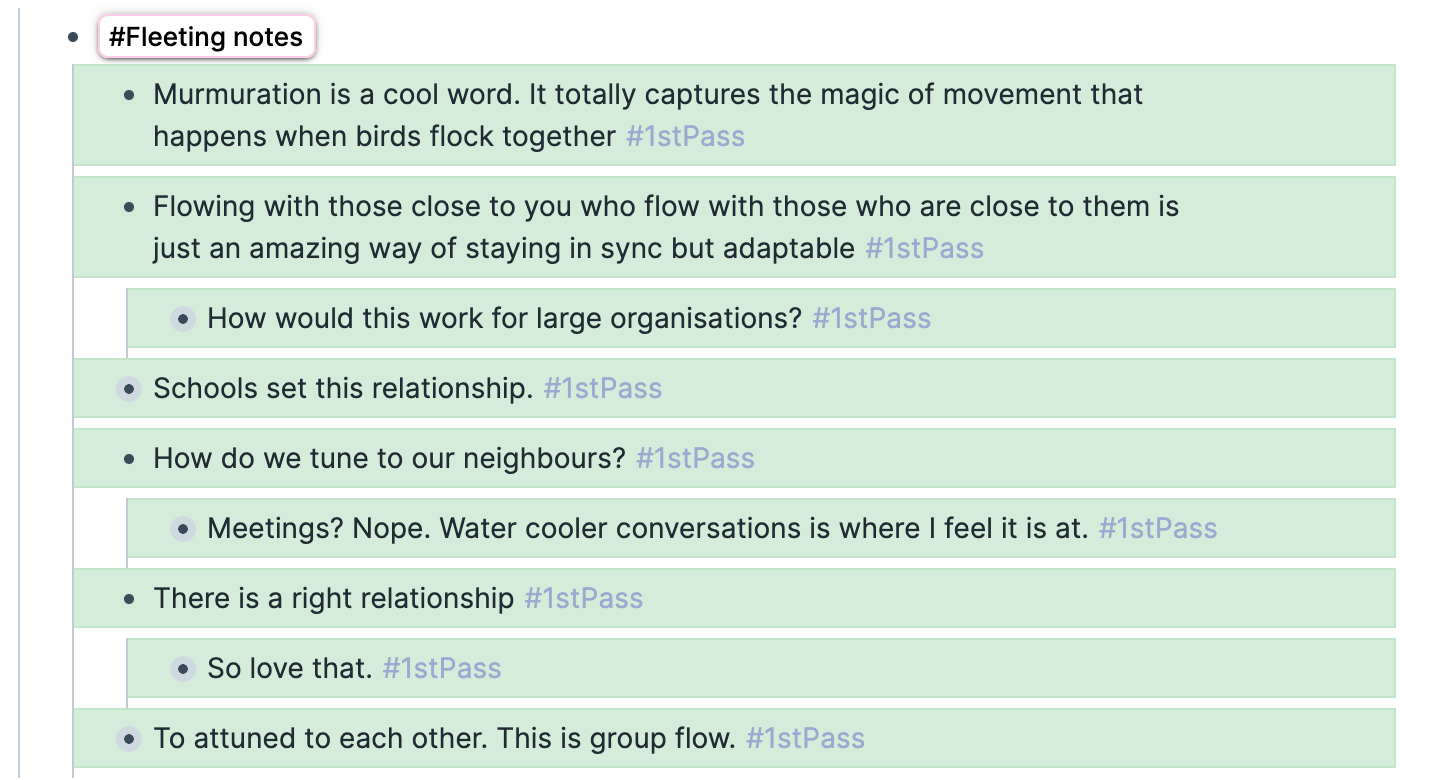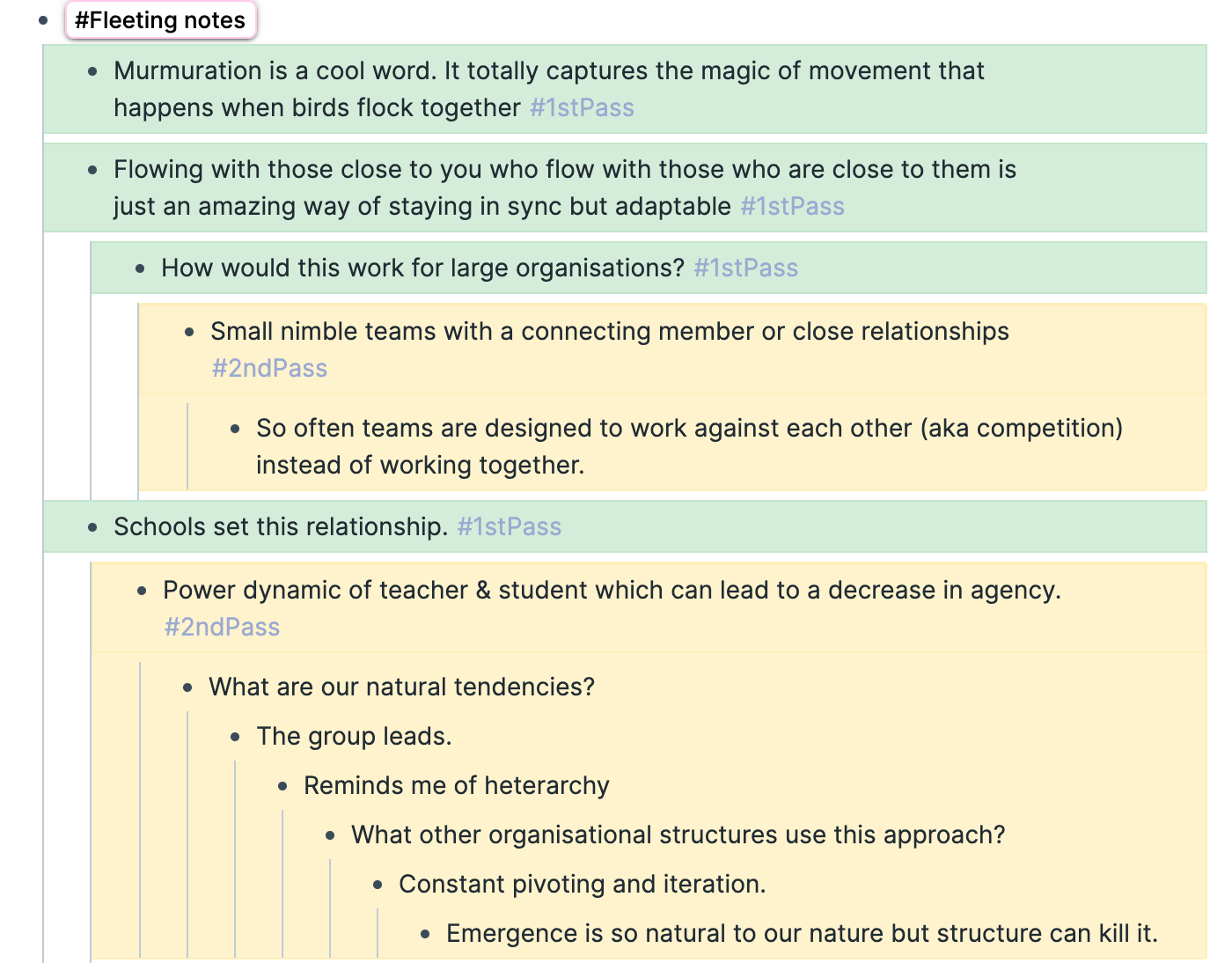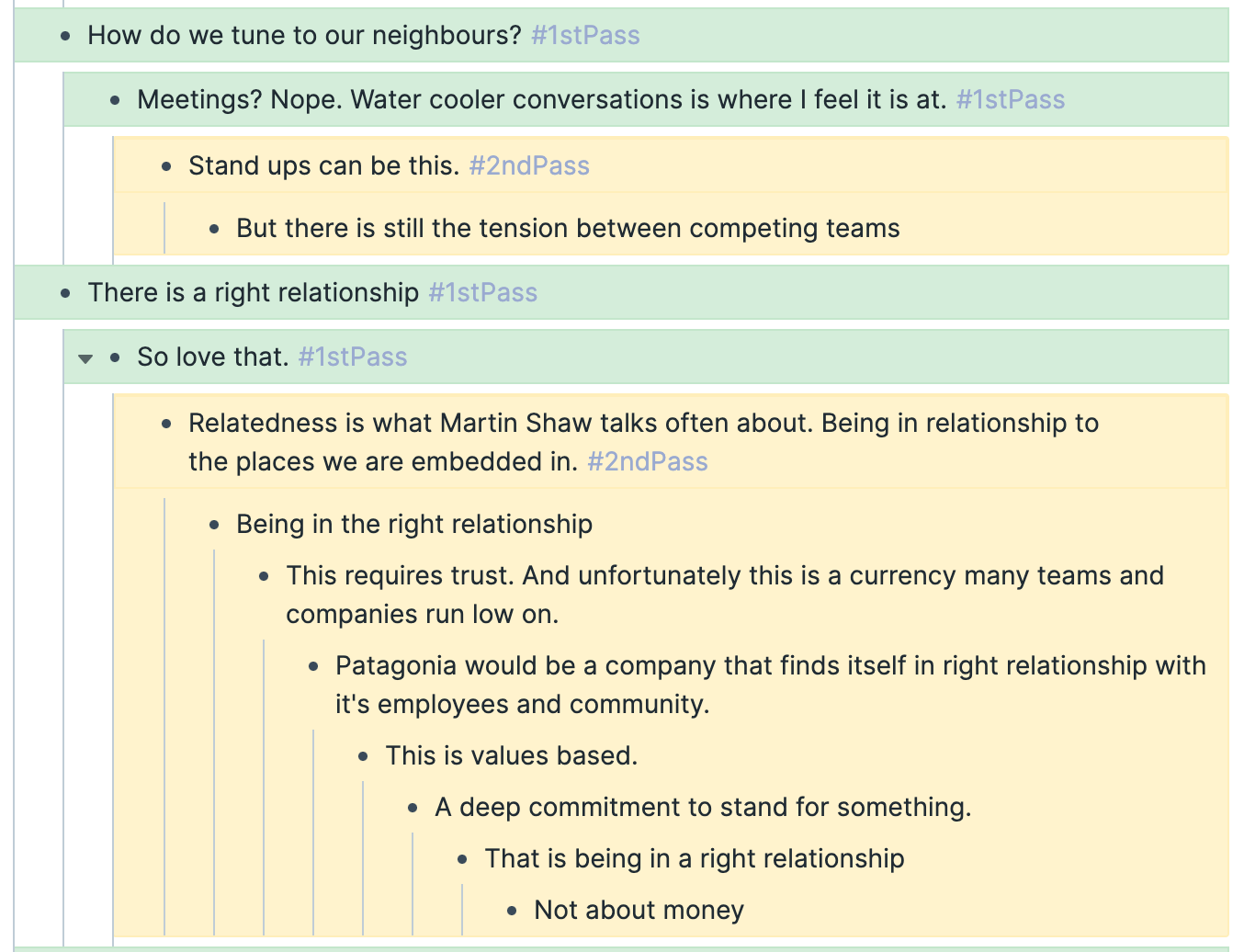Hello Hedge Schoolers,
Hedge School has been a joy to bring to life every week. The constraint of sharing regularly and learning while people are watching is a lesson in vulnerability and deeply connected to my values and ideology on learning. What you read each week is a loosely held mental model of where my thinking is at a certain point in time. This learning skin will be shed over time as I grow. The distinct timestamp a snapshot. An iteration from a curious mind.
For this week, I'd like to take you behind the scenes to highlight my process for making sense of the world. In my current role in schools, sensemaking and forecasting are how I provide value to my school community. And I'd like to introduce you to the mental model that has had the most impact on my thinking.
If you read a lot and struggle to remember what you have read, this will change everything.
Crystal dialogue
To frame this, let’s create a shared experience.
The following is a paragraph from adrienne maree browns' brilliant book "Emergent Strategy" and what I would like you to do is to read the passage and try to come up with a crystallised representation of what the author is trying to say.
Starlings.
The synchronized movement patterns of a starling flock is also known as a murmuration. Guided by simple rules, starling murmurations can react to their environment as a group without a central leader orchestrating their choices; in any instant, any part of the flock can transform the movement of the whole flock.
Here’s how it works in a murmuration/shoal/swarm: each creature is tuned in to its neighbors, the creatures right around it in the formation. This might be the birds on either side, or the six fish in each direction. There is a right relationship, a right distance between them—too close and they crash, too far away and they can’t feel the micro-adaptations of the other bodies. Each creature is shifting direction, speed, and proximity based on the information of the other creatures’ bodies.
There is a deep trust in this: to lift because the birds around you are lifting, to live based on your collective real-time adaptations
How did you go?
Could you crystallise this excerpt in a few sentences?
Now can you take the crystallised version of this and integrate it with your current understanding of how the world works.
And share it with the world?
We read for meaning and as meaning-making beings, improving our ability to distill and integrate information leads to increased creativity and flow. One of the most influential meta-frameworks for doing this is Zettelkasten.
Zettelkasten
The Zettelkasten methodology was developed by German Social Scientist Niklas Luhmann. Luhmann, one of the most prolific writers and idea generators of the 20th century used this methodology to write 75 books and over 500 articles during his academic career. He is considered one of the greatest social theorists of the 20th century. A true trailblazer with an incredible ability to come up with new scientific concepts.
Luhmann's process revolved around creating external note cards and organising them in his Zettelkasten. A Zettelkasten is German for slip box.
Each card represented an idea, a quote, or something that piqued his interest. These were filed away with a unique filing system to allow for connection and serendipitous idea generation.
To explain the process would be to rob you of the magic. What I'll do over the next few weeks is create the conditions for you to learn the process by doing it.
But if you want to get a little glimpse of where we are going, you can check out this short video from Matt Brockwell outlining what a Zettel is.
Be in conversation with Fleeting Notes
Let's take the above paragraph.
Where did your mind wander to when reading?
What did it remind you of?
The intention of reading is meaning-making. But often we are only having a one-sided conversation. School has taught us to read a certain way and what it does is rob us of dialogue with the author. The first phase of the Zettelkasten process is called the Fleeting Notes stage.
The Fleeting Notes is a capture of your mind wanderings while reading.
To do this, we need to get prepped. Every time you sit down to read, make sure you have a notepad or way of capturing your thoughts. This is about bringing YOU to the dialogue. This is where the gold is. Personally, I used to beat myself up for my mind wandering when I listened to podcasts or read books but it is a design feature, not a fault.
Reread the above passage.
As you read, write down anything that comes up for you.
Random thoughts.
Things it reminds you of.
Go down any rabbit hole that pops up.
Follow the thread.
Keep writing.
Once you feel you have extracted all the gold, go back and reread what the author has said and your own thoughts. Add whatever pops up.
I use a program called Roam Research to capture my thinking and help me create a digital Zettelkasten. It has revolutionised my writing, thinking, and sense-making and if you are keen to hear more about it, I'll share some videos of my workflow. Every episode of Hedge School was born in my digital Zettelkasten.
Below is my example.
1st Read of the passage (Green)
This is what I brought to the conversation with the author. There is some fluff here but also some good rabbit holes to explore, which I did on the second pass.
2nd Read of the passage (Yellow)
Now we are getting juicy with the conversation. I have extracted my side of the dialogue with the author. My goal is to find meaning.
My own meaning.
Fleeting notes while reading is your way of having a conversation with the author. It may not eventuate to anything but the process instantly places agency back in your hands.
You become an active participant.
You get to see what's missing.
To find the patterns.
To bring your experiences (which are rich and valuable) to the crucible of learning that has been created between you and the author.
The Fleeting notes stage will change how you read. You will see that reading is a two-way street and your input is needed.
This works for all reading.
Physical books. Articles. Ebooks. Podcasts. Tweets. Poems. Anything.
Be in conversation with the author.
Bring yourself to the dialogue
And watch the alchemy begin!
Next week, we will move to the Literature notes stage. Here we move from active speaker to active listener. Our conversation starts to get rich!
A huge thank you to Beau Hann and the Roam Bookclub 3 crew. So many penny drops thanks to participation in this amazing community.
Till next week,
Steve









Thanks Steve. I’m looking forward to putting this into practice.